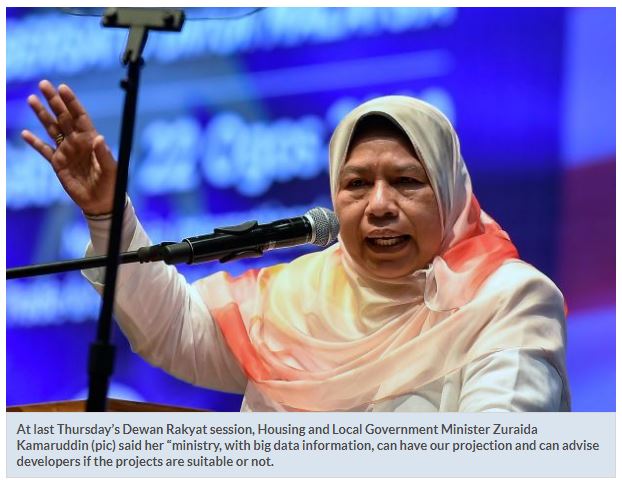Malaysia: Wariness over proposed property vacancy tax
PETALING JAYA: A property research head and an economist continue to view the vacancy tax proposed by the Housing and Local Government Ministry with wariness.
Economist Carmelo Ferlito said it is only “sound and wise” for developers to do market and financial feasibility studies before going into a project.
“A feasibility study, or a business plan, independently done, is a normal practice for any entrepreneurial venture. The developer’s profit depends on the project’s viability, ” Ferlito told StarBiz. However, he said the government “is not well placed to know what the market needs.”
It needs crucial expertise in order to “influence (the sector) in the right direction.”
So on the part of the government, when it comes to “market knowledge”, its toolkit is lacking, Ferlito said. “So the knowledge problem remains. No central authority is able to know what the market needs better than the players – the different layers of expertise – involved in the sector, ” he said.
“But what leaves me perplexed is that the government would advise if the feasibility study is according to what the market needs.
“How can the government know what the market needs? It is a contradiction.”
At last Thursday’s Dewan Rakyat session, Housing and Local Government Minister Zuraida Kamaruddin said her “ministry, with big data information, can have our projection and can advise developers if the projects are suitable or not.”
Ferlito (pic below) said the government is not a market player, and the knowledge it has is based on statistical analysis. “Therefore, it is static, not evolving and that information is based on the past. It is history, ” he said.
Rahim & Co International research director Sulaiman Saheh said while he supports the need for a mandatory independent market and feasibility study to be carried out before developers embark on any problem, objectivity is paramount. So the study must be commissioned by the banks and not the developers, he said.
“This should be done at the planning stage, ” he added.
The project may be implemented later and the market may have changed, but the study can be submitted when applying for a development order from the local authorities, and when applying for a bridging loan or project financing, Sulaiman said.
He said local authorities give approval to developers to build when they issue developers with a Development Order.
So local authorities play an important role.
“These studies are merely tools to forecast (how successful) a project will be, but no one can guarantee what the future holds. The objective is to take reasonable steps to mitigate the risk of unsold units, ” he said.
Sulaiman said latest overhang numbers — unsold units — for residential units, including serviced apartments and small office home office (SOHO) stand at 48,619 units as the end of the first quarter of 2020 ending March 31.
“It has held above 45,000 units since 2018, from just above 12,000 units in 2015, ” Sulaiman said.
He said it is unclear what the key aim of the tax is, as proposed by Zuraida, but it seems to relate to the concept of Unsold Property Tax, rather than Vacancy Tax per se.
If that is the case, then such a tax would be “against the spirit of free market”. And if such a tax should retrospective or prospective?
“Consider the impact on existing approvals and projects which are under construction. Perhaps, if and when the tax is imposed, it should be on yet-to-be-approved or forthcoming projects in order to be fair, ” he said.
Source: https://www.thestar.com.my/business/business-news/2020/09/01/wariness-over-proposed-property-vacancy-tax


 English
English





